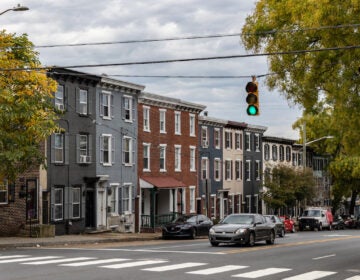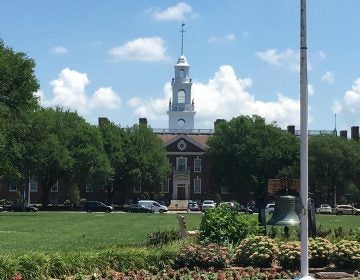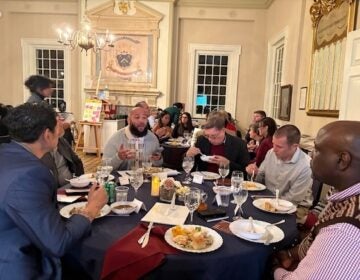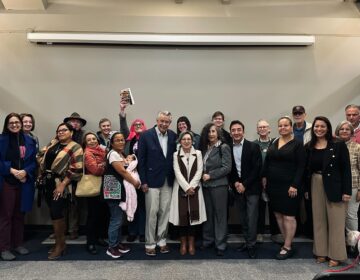Delaware’s 14,000 immigrants eligible for naturalization face complex path to citizenship
Of the state’s 100,000 immigrants, only 14,000 are eligible for naturalization. Here’s a look at some of the complex legal hurdles.
Listen 1:27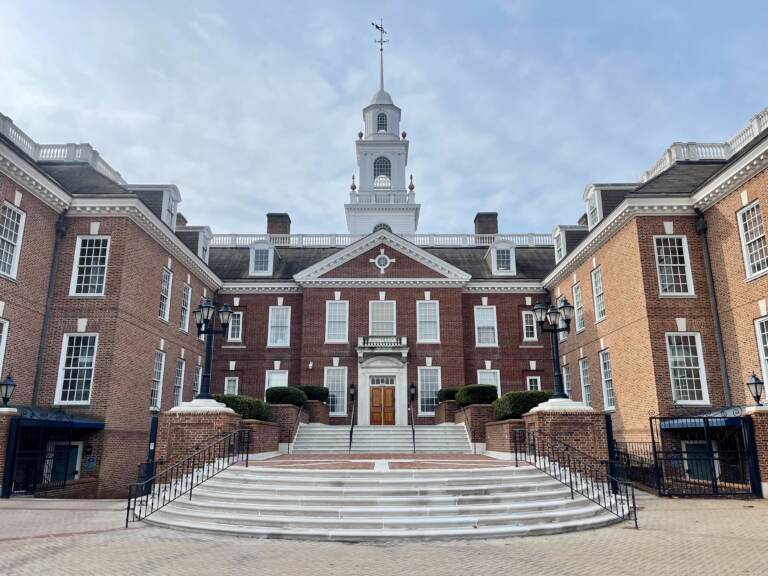
Legislative Hall in Dover, Delaware. (Johnny Perez-Gonzalez/WHYY)
From Philly and the Pa. suburbs to South Jersey and Delaware, what would you like WHYY News to cover? Let us know!
Despite Delaware’s small size, it is home to a community of over 100,000 immigrants. Only 14,000 are eligible for naturalization.
The American Immigration Council’s 2021 data shows that most of Delaware’s 100,000 immigrants hail from Mexico, India and China — 15%, 9.7% and 7.3%, respectively. A substantial number are employed in finance, construction and health care industries.
“That’s kind of very typical across the nation,” said Steven Hubbard, senior data scientist at the AIC. “There’s about 70,000 immigrants in the Delaware workforce and they work in many different types of jobs. The one that’s very important is health care… We also know that 20% of immigrants are working in [STEM] jobs.”
These immigrant communities significantly contribute to Delaware’s economy and tax base, paying approximately $1 billion in total taxes annually.
Despite that economic contribution, many do not benefit from the taxes they pay. That’s not just, says Joanne McAfee, who serves as immigration specialist for Catholic Charities Diocese of Wilmington, offering legal services to immigrants throughout the state.
“The data has shown, clearly, for our federal and state and Social Security taxes, how much is paid by foreign-born folks. Most of them put in a good amount of money over the course of their lifetime here, some of it that they can never even draw on,” said McAfee. “They contribute greatly to the economy and yet we keep them from thriving by not allowing them to work legally or not allowing them to move through those processes quickly.”
For many immigrants, attaining legal status and citizenship represents a transformative improvement in quality of life. It means shedding the fear of deportation, achieving economic stability, gaining the ability to engage in civic duties and experiencing a sense of belonging.
It’s more complicated than it seems
“One of the things that is difficult sometimes, it’s really a mixed bag of education. Some people [have] several degrees and some people only went to school through a certain grade in elementary school,” McAfee said. “Sometimes it’s the language barrier.”
Other challenges often include dealing with complex bureaucracy, enduring lengthy wait times, facing high costs and fees associated with the process and meeting stringent eligibility criteria.
McAfee points out that the primary internal issue is the limited availability of immigration attorneys and specialists relative to the significant demand within the immigrant community.
“In the United States, there’s approximately 12,000 immigration lawyers. That’s obviously not a very large number considering our population. We only have about 2,400 accredited reps in the United States,” she noted. “If you look at just the undocumented population, if they were to come for services, that would be like 1,465 to 1.”
That’s where organizations like Community Legal Aid Society, Latin American Community Center and La Esperanza play a crucial role in supporting immigrants seeking status and citizenship. Some even provide essential civic classes and ESL programs to assist immigrants in their journey.
Since McAfee took over the specialist role at Catholic Charities last year, they’ve facilitated 11 naturalizations, sought protected status for 25 individuals and assisted 30 people with employment authorization. Notably, these services do not guarantee approval.
La Esperanza in Georgetown serves the Latino population in Sussex County. Co-executive director Bryan Garcia explains that while they represent their community through the application process, part of their work is on getting immigrants to improve their English and prepare them for the civic tests.
“We’re going to help [them] get there,” he said, “[whether] that’s either through representing them in their case before immigration [authorities] to become a citizen, whether that’s helping them through our classes, which are meant to help them with their English and help them with their U.S. history and civic knowledge.”

Get daily updates from WHYY News!
WHYY is your source for fact-based, in-depth journalism and information. As a nonprofit organization, we rely on financial support from readers like you. Please give today.



